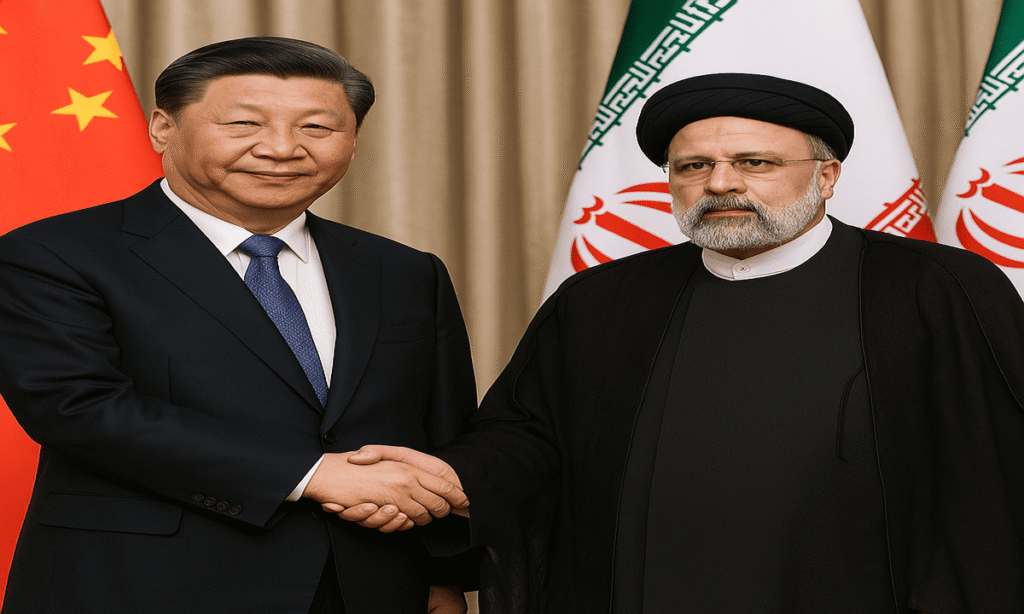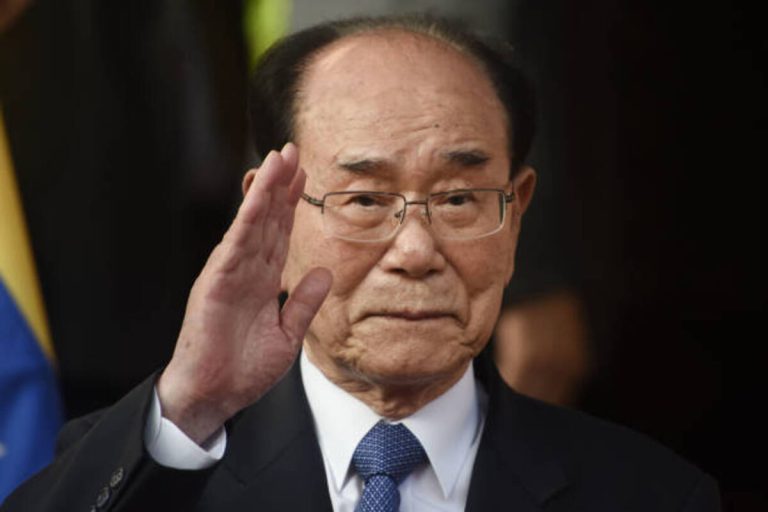
Beijing eyes expanded Iran ties through oil trade and infrastructure amid growing regional unrest.
EPICSTORIAN — China continues to deepen its economic ties with Tehran by pursuing significant Iran oil imports and investing in its key infrastructure projects, despite mounting diplomatic and economic pressure from the United States.
This is expected as part of Beijing’s broader effort to secure its strategic interests across the Middle East, according persons familiar with the china-Iran strategic relationship.
Analysts say this growing alignment between the two nations comes in the wake of the recent Iran-Israel conflict, which has reshaped the regional balance and intensified global attention on China’s diplomatic posture.
China Iran Relations Reinforced by Shared Strategic Interests
After the 12-day confrontation between Iran and Israel in June—briefly involving the United States—experts suggest that China sees opportunity and risk in equal measure.
The Chinese government, operating under a 25-year cooperation agreement signed in 2021, is likely to boost energy imports and increase infrastructure investment in Iran.
This agreement, which was activated in the midst of ongoing Western sanctions, provides China with privileged access to Iranian oil and natural gas, positioning Beijing as a vital partner for Iran’s economy.
Strategically, this aligns with China’s Belt and Road Initiative, which seeks to expand trade routes and geopolitical influence across Eurasia.
Beijing to Expand Oil Imports from Iran
China’s oil imports from Iran could surge as a result of the partnership, offering Tehran a financial lifeline while shielding Beijing from overreliance on Gulf states or politically volatile suppliers.
According to analysts, these energy flows support China’s long-term ambitions of energy diversification and supply chain security.
Also Read:
Sun Degang, director of the Centre for Middle Eastern Studies at Fudan University, noted that Iran’s domestic unity has intensified following Israeli and U.S. strikes, reducing the chances of internal unrest or political reform that could threaten Beijing’s interests.
“Public sentiment has rallied behind the regime,” Sun said. “Calls to safeguard sovereignty have strengthened, and that stability plays directly into China’s regional calculus.”
Middle East Stability Key to China’s Regional Strategy
Beyond energy, Middle East stability remains a cornerstone of China’s regional approach. The recent escalation between Iran and Israel, including U.S. airstrikes targeting Iranian nuclear sites, has made the stakes even higher for Beijing. President Donald Trump’s comments suggesting possible regime change in Iran have heightened concerns over regional volatility.
Despite the risks, China appears intent on maintaining its presence and leveraging its unique role as a major power outside the Western alliance.
Jesse Marks, executive director of Rihla Research & Advisory, said Beijing would continue to walk a fine line, supporting Tehran without damaging relations with Gulf Cooperation Council (GCC) members.
Strategic Partnership May Extend Infrastructure Links
Infrastructure integration is another focus of the China Iran partnership. Sun suggested that the China-Kyrgyzstan-Uzbekistan railway, under construction since January, could eventually extend into Iranian territory.
The rail line, which spans 304 kilometers, forms part of a larger transit corridor aimed at enhancing connectivity between East and Central Asia.
“If extended to Iran, the corridor would reduce China’s geopolitical exposure while deepening integration with key regional partners,” Sun said.
Chinese Caution After Syrian Regime Collapse
China’s experience in Syria may be shaping its cautious, calculated approach to Iran. After Bashar al-Assad’s regime collapsed in December, Beijing pulled back from engagement with the new government led by Ahmed al-Sharaa, a former militant commander.
Concerns over links to Uygur militants from Xinjiang, who fought alongside opposition forces, likely influenced China’s hesitancy.
In contrast to Syria, Iran is of much higher strategic value to Beijing, according to She Gangzheng, director of the Centre for Overseas Security at Tsinghua University. “Syria had no major Chinese projects.
Iran, however, is deeply embedded in China’s long-term regional and energy goals,” She said.
Maintaining Regional Balance with Gulf Partners
China’s growing ties with Iran do not come without cost. Beijing has steadily built diplomatic and trade relations with Saudi Arabia, the United Arab Emirates, and other GCC nations. These countries remain wary of Iran’s nuclear ambitions and regional behavior.
Marks warned that China must avoid appearing to endorse Tehran’s more aggressive stances. “A nuclear-armed Iran, or even the perception of Chinese backing for such a development, could jeopardize China’s economic relationships across the Gulf,” he said.
China’s Long-Term Commitment Hinges on Stability
Analysts agree that China will continue to press for regional de-escalation. While it is unlikely to act as a formal security guarantor for Tehran, Beijing is expected to support diplomatic initiatives that prevent further military conflict and encourage negotiated solutions to nuclear concerns.
“Stability remains a prerequisite for China’s ambitions in the region,” Marks noted. “Without it, Beijing’s projects—whether in energy, transport, or commerce—risk being derailed.”
Ultimately, the China Iran relationship appears set to expand, driven by aligned political interests, mutual strategic needs, and shared resistance to Western pressure.
Yet the balance between deepening partnership and preserving neutrality in the region will remain a challenge for Chinese policymakers navigating an increasingly complex Middle East.

